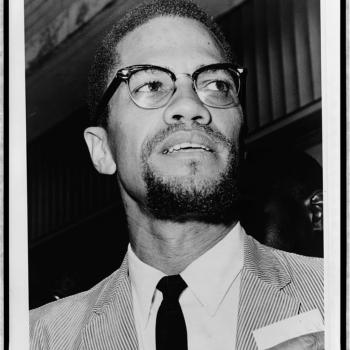Malcolm X was born in Nebraska in 1925.

Event Description
Named Malcolm Little by his parents in 1925, Malcolm X became one of the most prominent militant black nationalist leaders in the United States. He was a spokesperson for the Nation of Islam and founder of both the Muslim Mosque, Inc., and the Organization of Afro-American Unity. Malcolm X was assassinated in 1965.
Classroom Activity
What do names tell us about people? Ask students to write about the origin of their own names in their journals. How did they come to be named? Who made the decision about their official names? What nicknames do they have? What names do they like or dislike and why? If they could pick out their own names, what would they select?
After students have had time to reflect and write on this topic, explore the names Malcolm X used during his lifetime: Malcolm Little, Detroit Red, Malcolm X, el-Hajj Malik el-Shabazz, and Omowale. Students may have an easier time understanding Malcolm X's switches if they consider Esperanza's desire to change her name in Sandra Cisneros's House on Mango Street. Share this excerpt with students, and then hold a class discussion about the different names Malcolm X used during his life. Next to each name, ask the class to brainstorm adjectives that might be used to describe Malcolm X during that period in his life.
Websites
Links at this site provide resources about Malcolm X and his life. Included are an audio archive of his speeches, photographs, a timeline, links to related Internet resources, and more.
This site from Columbia University includes new research and multimedia materials about Malcolm X. Research for an upcoming biography about Malcolm X is included in the site, as well as numerous digital interviews with people who knew him.
This Encyclopaedia Britannica entry on Malcolm X includes biographical information, as well as suggestions for further reading and links to other people and places related to black history.
This historical article, from the New York Times Learning Network, discusses an interview with Malcolm X, given the week before he was killed by assassins identified as Black Muslims.